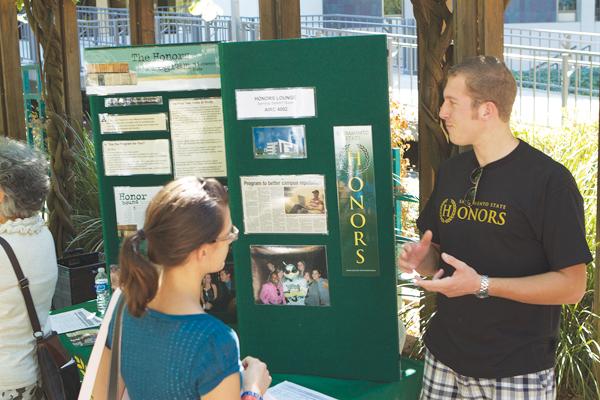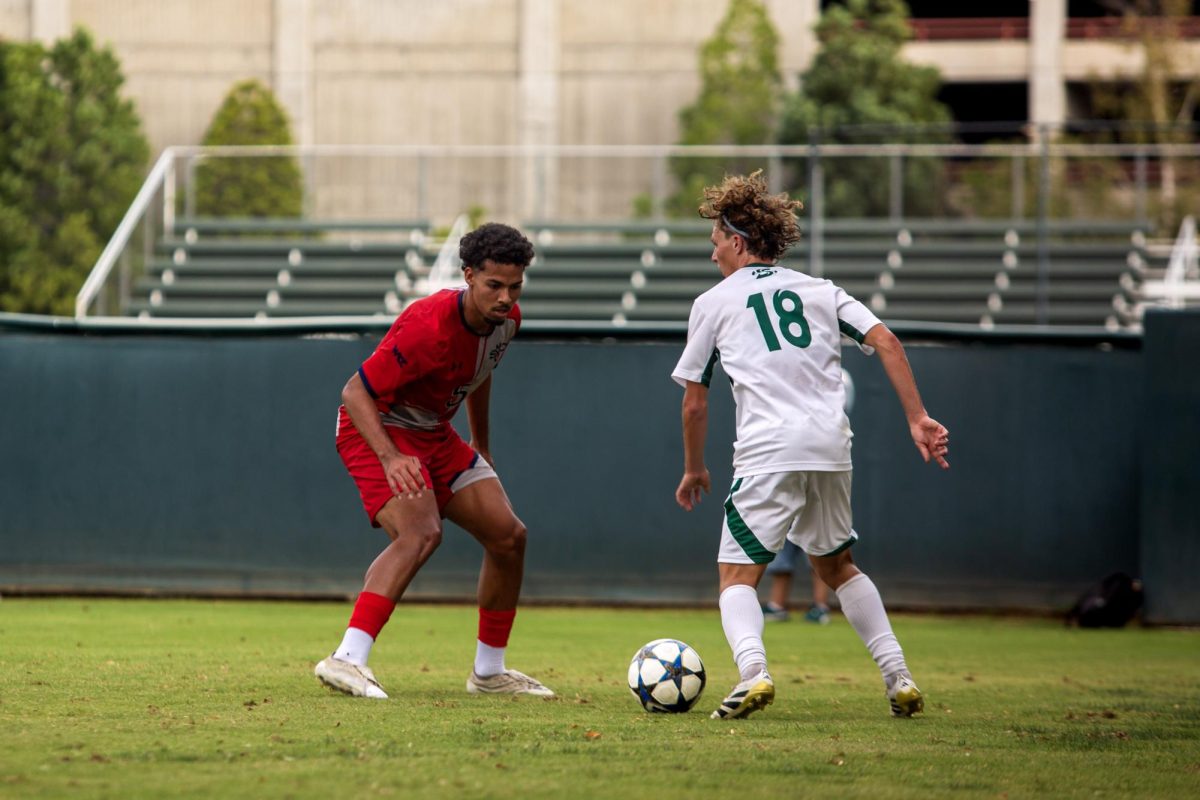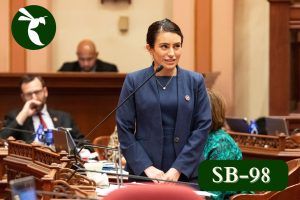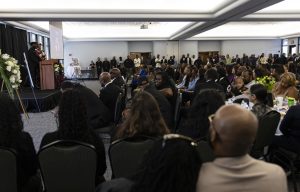Sac State?s Honors Program thrives despite budget cuts

Honors Program:Sophomore biology major Scott Hougham talks to a student about the Honors Program during Preview Day last week. :Daniel Ward – State Hornet
October 5, 2010
Sacramento State’s Honors Program, like other departments on campus, is still adjusting to a decrease in funding.
The program received a 20 percent budget cut in fall 2009, and the cumulative reduction is still being applied to the program this school year. But there is hope some of the funding will be restored after the budget is approved, said Honors Program Director Roberto Pomo.
The budget for the program went from about $9,096 in 2008-09 to $7,200 in 2009-10. This school year, the program received more funding, but majority of which came from Federal Work Study allocation; funds from the university stayed the same at $3,000.
But Pomo said restoration of funds is not certain even if the governor’s proposed budget for the California State University system is passed.
“That’s going to be up to the administration because it’s not just the Honors Program that has been cut, we’ve been cut across the board,” Pomo said.
The reductions have caused cutbacks in general expenditures so that those in the program have to watch every penny they spend, from buying office supplies to paying for the phone bills, Pomo said.
The reduction has also left less money for public speakers, which are essential to the program’s curriculum, Pomo said.
“When we have guest speakers, it’s usually incorporated into our assignments,” said Alex Villucci, sophomore computer engineering major. “If cuts like this continue, were going to be seeing less and less individual guest speakers. We might have to look for alternative methods to open our minds to the world at large to be able to supplement what the Honors Program can’t afford at the time.”
But because of excellent faculty, the budget cuts have not really affected the students’ educational experiences, Pomo said.
“I think the faculty is so committed they’ll figure out a way to make it work,” said Scott Hougham, sophomore molecular biology major.
George Craft, history professor, first established the program in the 1970s, but it was discontinued shortly after, Pomo said.
In 2004 President Alexander Gonzalez felt the need to restart the program, and after a two-year long process the program was recreated, Pomo said.
The program differs slightly from traditional classes. Instead of centering around lectures, honors classes are mostly seminar-driven and have a larger emphasis on critical thinking skills and class discussions, Pomo said.
“We really believe in the seminar situation where we read material, we assess it then we discuss it in class and write on it,” Pomo said.
A lot of students in the program prefer its seminar-style teaching method than that of traditional classes.
“I’m a person who’s more a visual learner, so that’s really helpful to me,” said Muamong Vue, undeclared freshman. “You’re not just another student in the class; they actually hope that you get it.”
Cayla Gales can be reached at [email protected].
























































































































